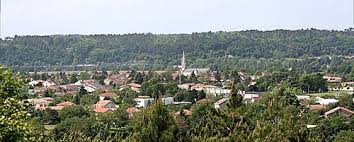I write this blog in English to be sure that it connects with as many people as possible. That would not be the case were I writing it in French.
But my English is broken and full of mistakes (and typos). A friend of mine reads each post when it is still a proof; she makes corrections and editing, adds comments.
This morning, she wrote:
“I didn’t find this at all boring. The picture reminded me powerfully of the countryside around Limoges, and of the small village that I lived in for so short a time. I still miss it, and the sense that time has stopped in rural France. Perhaps that timelessness, or the sense of being outside events, is what presses on your spirit, and yet draws me to it. We always want what we cannot have!”
I had told her that I was wondering if all these prefatory entries were not boring for readers. And yet, I found them necessary.
Her answer puts the finger right were it hurt, as she usually does because she knows me well and understands the situation.
I wanted to show another paradox: caregiving for Anne-Fleur is full of paradoxes!
When she was born, there were lots of distance between the various elements of the team that was gathered around her. The team itself was split in three locations at least: Bordeaux, Périgueux and The Village. This meant driving endlessly from one place to the other, coordinating exercises, results, treatments, by letters and by phone calls. It was a time when there was no internet, no motorways, no high-speed trains. Women were not used to driving themselves: Anne-Fleur’s mother relied on her husband. But, as he had a job, he was not able to ask for infinite days off. So, she took driving lessons and was one of the first women having her own car and driving around – a shock and eccentricity in The Village. At the same time, she hated it and was terribly frightened every time she took her car. Caregiving thus had a secondary impact on her life – one that was not expected, due to space and distances.

It had another impact in the repartition of roles within the parents’ couple. The wife-mother gained more autonomy with her driving and some tasks were shared more equally.
The negative side was that time was more and more devoted to Anne-Fleur. All their life and the spare moments they might have had by adding new technologies and new sharing of gender roles, were now dedicated to enhancing Anne-Fleur’s capacities of and in life.
Spaces were wider and more distances were covered from one place to another. Nevertheless, the nub of all activites and life was in The Village and in the house. This is were my friend’s comment takes all its weight: “I still miss it, and the sense that time has stopped in rural France. Perhaps that timelessness, or the sense of being outside events, is what presses on your spirit, and yet draws me to it.“ Yes, it seems idyllic when one knows that there is a world outside that one may reach easily. But for people who had to stay in this place (think bout the time as well: the 1960s) without no outlet but television, newspapers, books and magazines, under the scrutiny of family and neighbours, that was claustrophobic.
Therefore, place – the setting – was/is essential in caregiving for Anne-Fleur, and it is essential for all caregivers and their charge who all need space and contacts with other people in order to pause and get retrieve, to regenerate in order to get back to dailylife without being too worn out by routine.
No comments:
Post a Comment